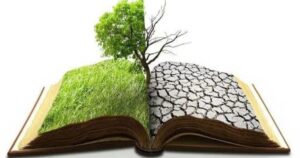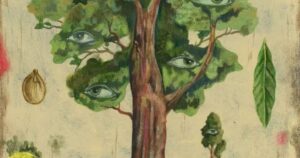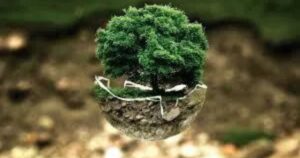Eco-Criticism: 20 Notable Works
Eco-criticism, also known as ecocriticism, is a literary theory that seeks to explore the relationship between literature and the environment. This approach examines how literary works reflect, shape, and interact with the natural world, highlighting the interconnectedness of human and non-human entities.
Table of Contents

Origins of Eco-Criticism:
Eco-criticism emerged in the 1990s, primarily in the United States, as a response to the growing concern about environmental degradation and the need to reevaluate humanity’s relationship with nature.
Key Principles:
- Interconnectedness: Eco-criticism emphasizes the intricate web of relationships between human and non-human entities.
- Environmental awareness: This approach encourages readers to consider the environmental context of literary works.
- Ecological perspective: Eco-criticism adopts an ecological perspective, recognizing the interconnectedness of all living beings.
Methods:

- Close reading: Eco-critics engage in close readings of literary texts to uncover environmental themes and motifs.
- Contextual analysis: This approach considers the historical, cultural, and environmental context of literary works.
- Interdisciplinary dialogue: Eco-criticism draws on insights from ecology, biology, philosophy, and other disciplines.
Key Figures:
- Cheryll Glotfelty: A pioneer of eco-criticism, Glotfelty edited the influential anthology “The Ecocriticism Reader”.
- Harold Fromm: Fromm’s work explores the intersection of literature and ecology.
- Lawrence Buell: Buell’s scholarship focuses on environmental imagination and the role of literature in shaping ecological awareness.

Notable works associated with eco-criticism:
- Walden (1854) by Henry David Thoreau – A classic work of environmental literature that inspires eco critical analysis.
- The Grapes of Wrath (1939) by John Steinbeck – Explores the human relationship with the land and environment.
- The Hungry Tide (2004) by Amitav Ghosh – Engages with environmental themes and eco-critical perspectives.
- The Ecocriticism Reader (1996) edited by Cheryll Glotfelty and Harold Fromm – A foundational anthology of eco-critical essays.
- The Environmental Imagination (1995) by Lawrence Buell – Explores the role of literature in shaping ecological awareness.
- The Song of the Earth (2000) by Jonathan Bate – Examines the relationship between literature and the environment.
- Ecological Thought (2010) by Timothy Morton – A philosophical exploration of ecological interconnectedness.
- The Sixth Extinction: An Unnatural History (2014) by Elizabeth Kolbert – A non-fiction work that explores the impact of human activity on the environment.
- Flight Behavior (2012) by Barbara Kingsolver – A novel that engages with environmental themes and eco-critical perspectives.
- The Overstory (2018) by Richard Powers – A novel that explores the interconnectedness of human and non-human entities.
- Henry David Thoreau: Author of “Walden,” a classic work of nature writing that explores simple living and environmentalism.
- John Muir: Naturalist and writer who advocated for conservation and the preservation of wilderness areas.
- Aldo Leopold: Author of “A Sand County Almanac,” a seminal work of environmental literature that explores the land ethic.
- Rachel Carson: Marine biologist and writer who exposed the dangers of pesticides in “Silent Spring,” a groundbreaking work of environmental journalism.
- Edward Abbey: Author of “Desert Solitaire,” a classic work of nature writing that explores the American Southwest.
- Terry Tempest Williams: Author of “Refuge: An Unnatural History of Family and Place,” a memoir that explores the intersection of nature and human experience.
- Bill McKibben: Author of “The End of Nature,” a influential work of environmental writing that explores the impact of climate change.
- Margaret Atwood: Author of “The Year of the Flood,” a novel that explores a dystopian future and environmental degradation.
- Barry Lopez: Author of “Arctic Dreams,” a work of nature writing that explores the human relationship with the natural world.
- Wendell Berry: Author of “The Unsettling of America,” a collection of essays that explore the relationship between agriculture, community, and the environment.
These works represent a range of genres and approaches, from classic environmental literature to contemporary eco-critical theory and fiction.

Conclusion:
Eco-criticism offers a vital framework for understanding the intricate relationships between literature, culture, and the environment. By exploring the intersection of literary works and the natural world, eco-criticism encourages us to reevaluate our place within the ecosystem and to adopt a more sustainable and environmentally conscious perspective.
Read and learn more: Practical Criticism: 8 Notable Works







One thought on “Eco-Criticism: 20 Notable Works”